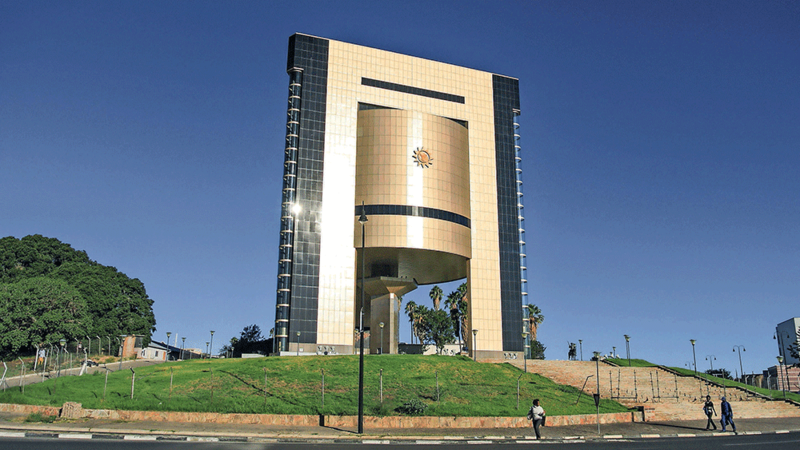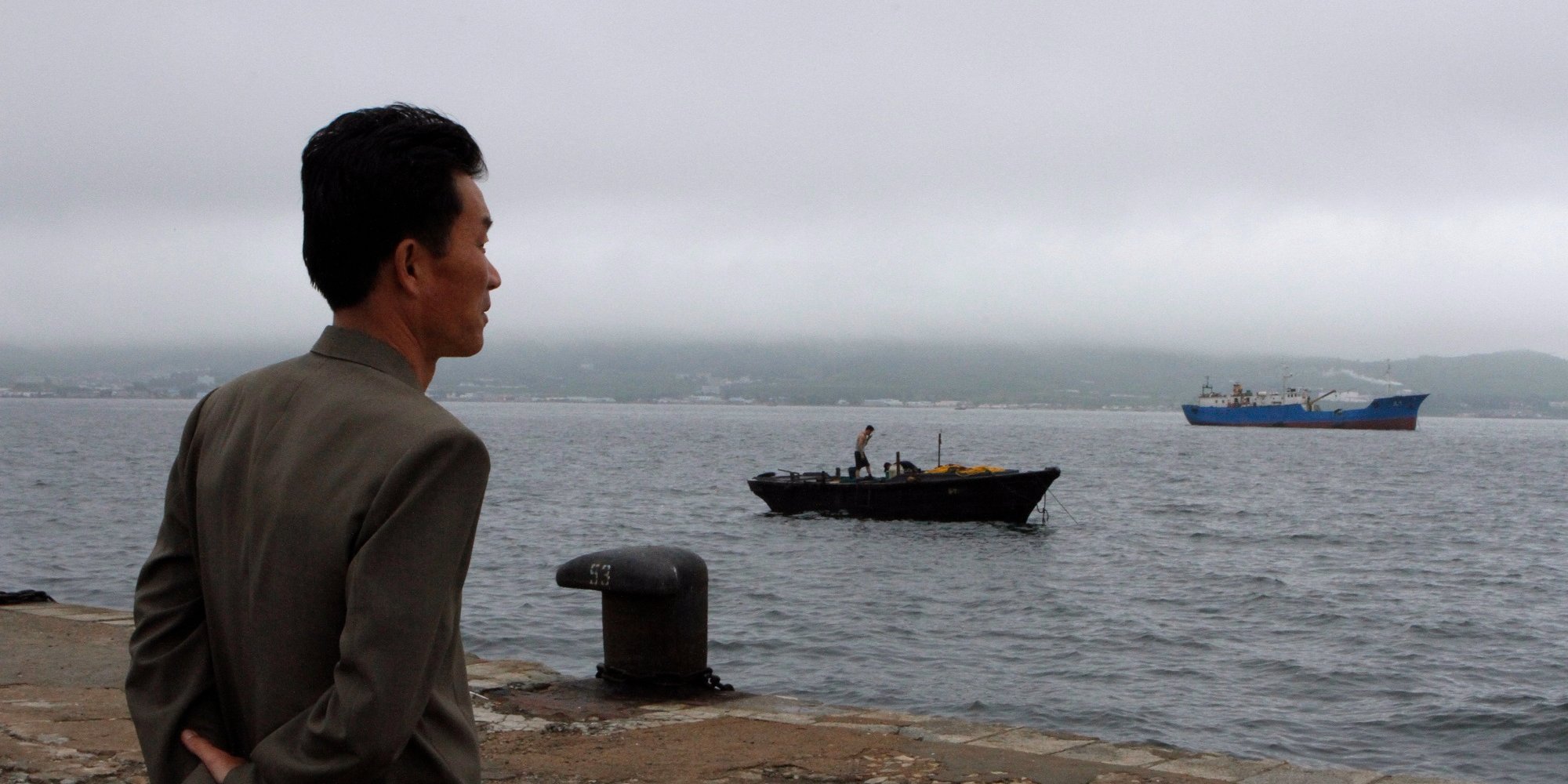North Korean construction companies view Africa as a ripe target for generating wealth. The problems that this new colonialism causes, undercutting local building firms and damaging the international reputation of countries like Namibia, has not been widely reported.
Construction and labor teams in Africa have become increasingly important for the DPRK as a way of generating revenue for the regime. North Korean companies undercut local firms with cheap labor and poor quality building materials, and they are able to make large profits in this way, exploiting some of the poorest countries in the region and taking advantage of lax regulations in many African jurisdictions.
Pyongyang Papers interest in this little known area of North Korean activity primarily involves a construction company called GENCO (Korea General Corporation for External Construction). GENCO is more than just a simple building firm. According to the UN Panel of Experts Report, released March 2019, GENCO (also known as KOGEN) has close links to the Mansudae Overseas Project Group (MOP). Mansudae are a sanctioned entity and has links to the RGB and the the UN designated entity KOMID – the DPRK’s main overseas arms trader and a key funding source for the regime’s nuclear weapons program.
So what have Mansudae and GENCO been up to in Africa? Pyongyang Papers decided to take a look.
Guinea and Sierra Leone
The UN Panel of Experts report 2019 annex makes interesting reading when it come to DPRK construction activity in Guinea and Sierra Leone. Letters sent by the UN to a Guinean firm called GUICOPRES accuse the company of using DPRK labor to construct a military base in Sierra Leone. GUICOPRES, which denies contracting North Koreans with the exception of initial survey work, has also used DPRK teams to build the new Ministry of Justice building in Conakry – Guinea (not sure that bodes well for the future of Guinean justice). According to the UN POE report, GUICOPRES sources its DPRK laborers from a company called Korea South-South (also known as Nam Nam).
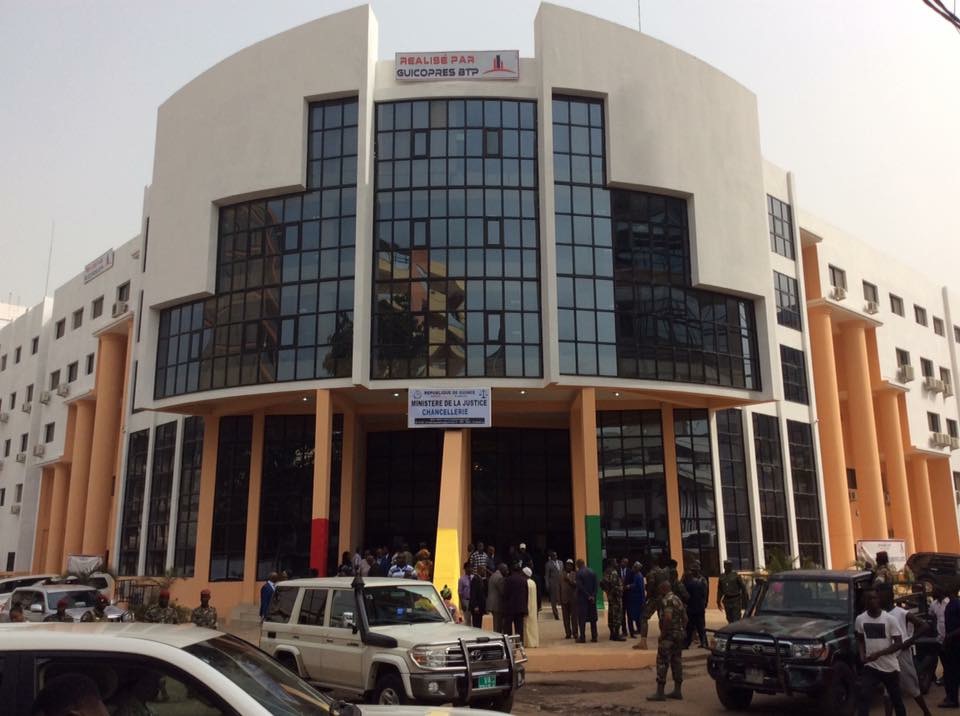
Namibia
In September 2017 local newspaper The Namibian reported that Mansudae had built the country’s State House and Independence Memorial Museum in Windhoek, and had secured another contract to build a defense headquarters and a munitions factory.
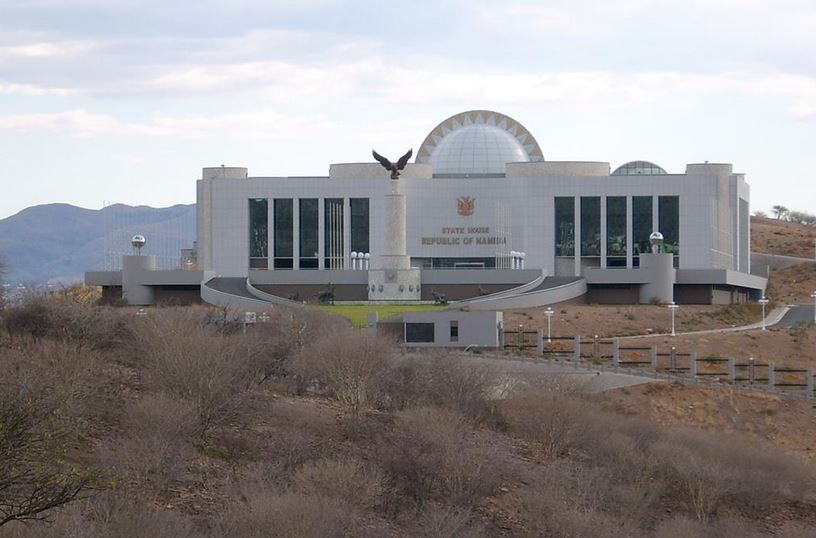
While commitments were made by Namibia to sever ties with Mansudae following the UN POE investigation in 2017, this commitment appears to have wavered. The Namibian quoted Foreign Minister Nandi-Ndaitwah, who visited DPRK shortly after the UN announcement in 2017, as syaing that ‘while Namibia remains committed to the implementation of all UN sanctions the warm diplomatic relations with the DPRK will be maintained’.
Namibian Minister of presidential affairs, Frans Kapofi, was also quoted in the same story as saying ‘North Korea is a long time ally, a partner in development, and an affordable contractor’. By ‘affordable’, Kapofi is acknowledging the fact that DPRK contractors are able to undercut local construction firms by underpaying their staff. Its likely that homegrown Namibian construction companies lost out on major contracts because of Mansudaes ability to use such cheap labor that effectively amounts to slavery.
Namibia spent at least $91.5 million on North Korean construction work between 2002 and 2017, according to the investigation by the Namibian. Its a huge sum of money that could have gone to building up and empowering local businesses. Instead it went to funding the DPRK’s nuclear weapons and ballistic missile development program.
Zimbabwe
In Zimbabwe, Mansudae was awarded contracts to build the country’s National Heroes Acre and Statue of the Unknown Soldier. A more recent contract to build a statue of former vice president Joshua Nkomo caused outrage as the DPRK is infamous in Zimbabwe for training the notorious Fifth Brigade, a unit responsible for massacring up to 20,000 people in Matabeleland during the Gukurahundi period.
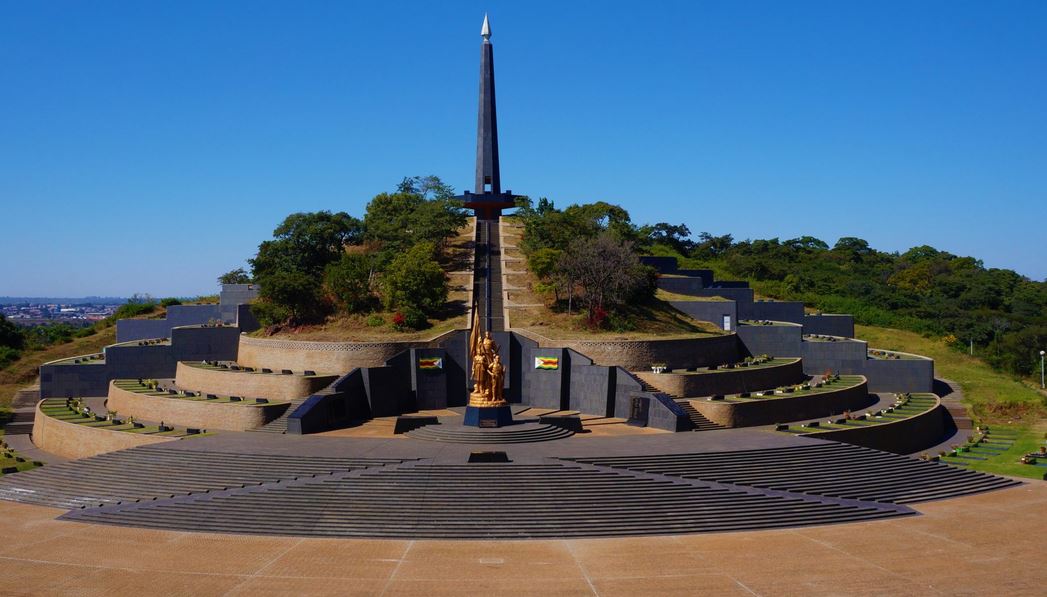
Mansudae (MOP) is still very active in Zimbabwe but is clearly looking at ways to get around the challenge of sanctions. Clever solutions have involved such radical steps as changing their name very slightly. For example, there has been wide coverage of a registered Zimbabwean entity called the Mansudae Boka Design Company (MBDC) which has been linked to MOP and which has caused quite a headache for the Zimbabwean government. MBDC, which now looks to have changed name once again, had a Zimbabwean director but the two majority shareholders were North Koreans called Hyo Song Pak and Kyong Chol Yun. The Zimbabwean director claimed that the name similarity and the two North Korean directors were both ‘coincidences’. Was it also a coincidence that Kyong Chol Yun is the head representative of MOP in Zimbabwe? Seems unlikely to Pyongyang Papers!
MBDC has taken payments from a Zimbabwean government department called the National Museums and Monuments of Zimbabwe, to provide statues and other artwork. MBDC has also taken payments from the Zimbabwean army and the police.
The Boka family in Zimbabwe seem to have developed very close working relationships with DPRK. In addition to fronting up the MBDC , Boka is also suspected of supplying Zimbabwean rag tobacco to DPRK, in violation of sanction prohibiting the export of luxury goods to North Korea. This trade is likely to have been facilitated by the Boka Tobacco Floors, a 50,000 square meter tobacco exchange in Harare owned by the Boka family.
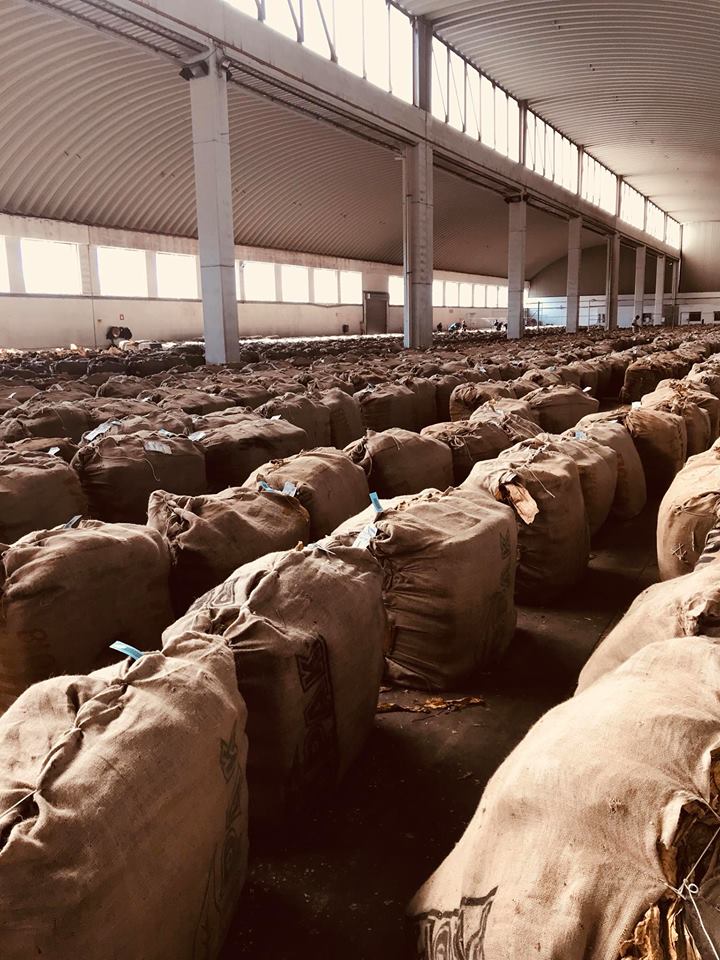
Zimbabwes involvement with Mansudae and the DPRK doesn’t stop with Boka. Given the DPRK’s historical involvement in mass killings in Zimbabwe, the ongoing government links are very worrying, as DPRK entities could be providing assistance to Zimbabwe to deal with civilian protests and unrest. It is one thing allowing DPRK to build your statues but its another to follow their lead on policing and human rights issues.
UN Reporting Deadline
The end of March 2019 marked the reporting deadline for all countries to account to the UN for the number of North Koreans working in their jurisdictions. This precedes the upcoming December 2019 deadline to expel all North Korean workers, as set out in the UN Security Council Resolution 2397.
With such a large number of DPRK construction workers slaving away in Africa (and elsewhere) for entities like Mansudae and GENCO, it will be interesting to see how many have been declared and how many have been expelled by the time December arrives. As always – get in touch with any more stories of illicit North Korean activity.

